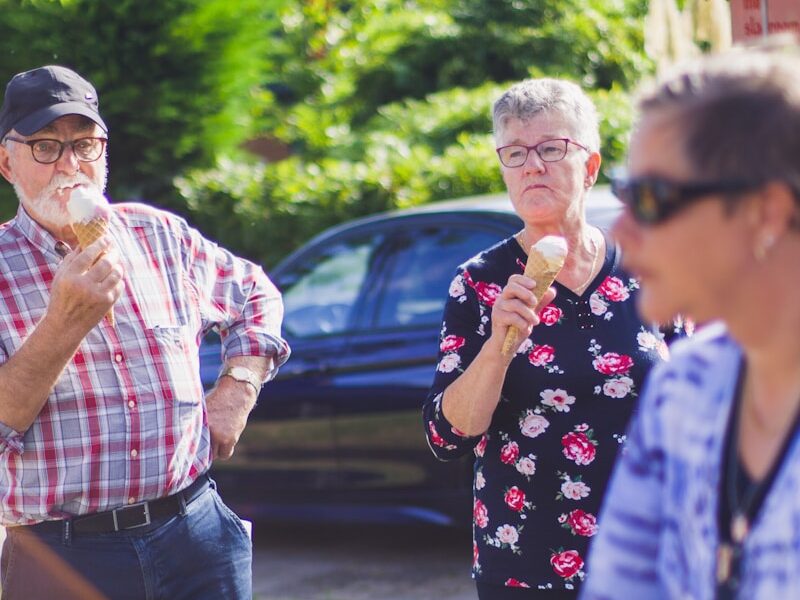
Nobody tells you how different friendship feels after fifty. It’s not worse or better exactly. Just different in ways that catch you off guard. You think you know how things will go, and then something shifts. The phone rings less. The people who matter start mattering more. It happens so gradually that you almost don’t notice, until one day everything changes.
You stop trying so hard.
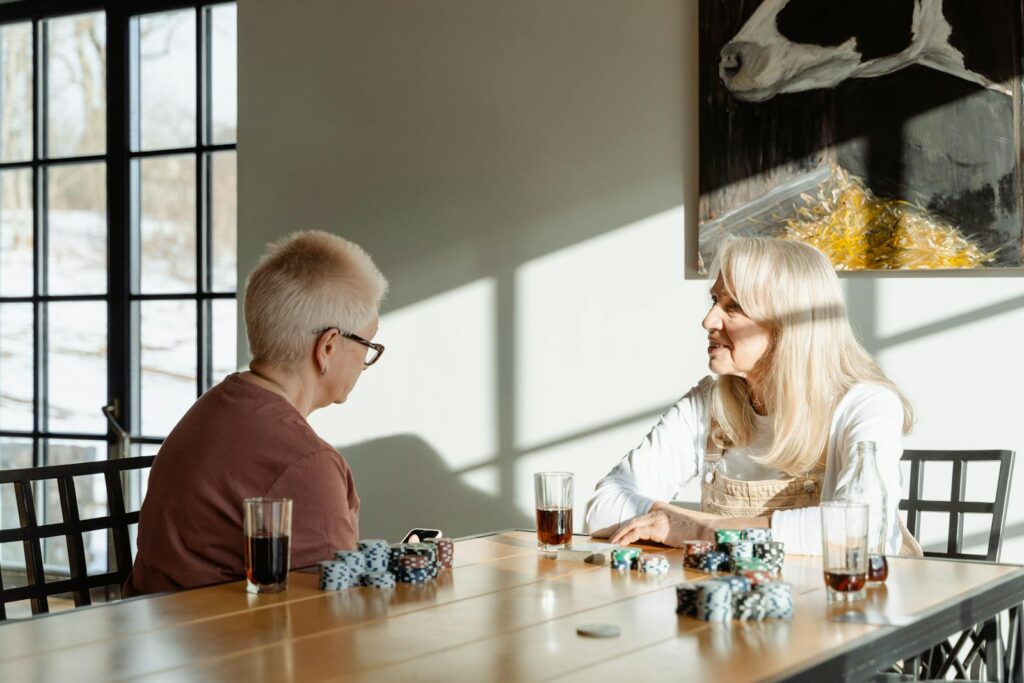
There’s less of that frantic energy to make plans stick. You don’t send three follow-up texts anymore, and you don’t feel guilty when someone cancels. If it works, it works. The friendships that need constant maintenance start feeling like work. You let them go without the drama you would’ve had at thirty. Sometimes you’re sitting at your desk thinking about calling someone, and then you just don’t. It’s okay.
The group gets smaller.
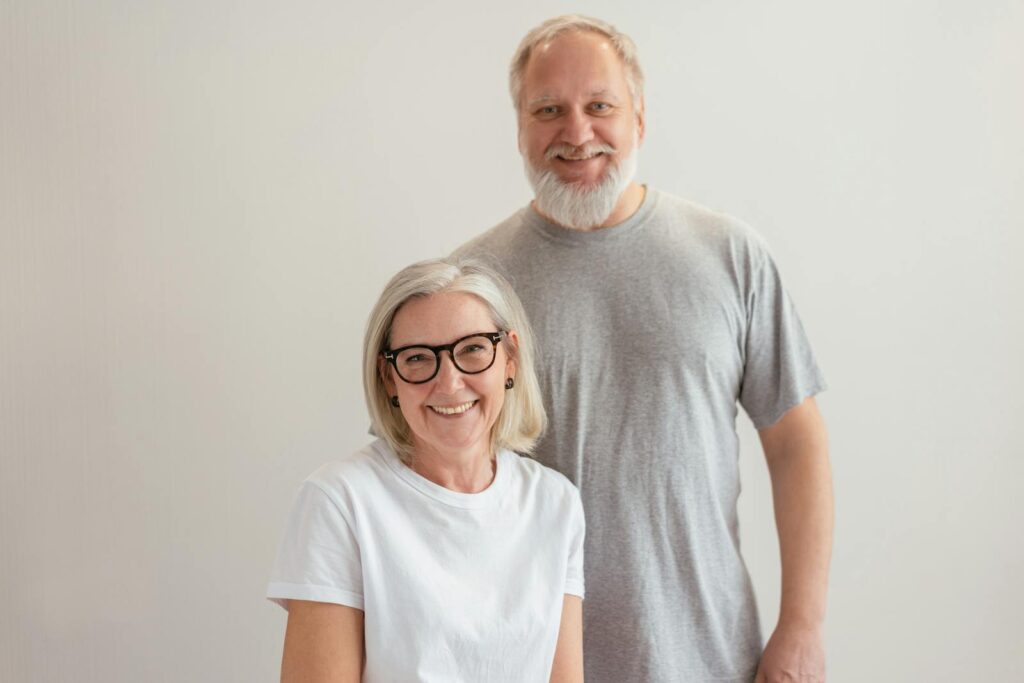
Ten people at dinner turn into four. Then maybe three. You’re not collecting friends anymore like you used to. There’s no point in it. The ones who stay are the ones who know you without you having to explain everything. You can sit in a car with them and not talk for twenty minutes. The coffee shop you meet at has the same corner table every time.
Geography matters more than you’d think.

Someone moves two states away, and the friendship just fades. Not because you’re angry or hurt. It’s just harder. You can’t meet for lunch on a Tuesday anymore. Texting isn’t the same as being in the same room. You tell yourself you’ll visit, but months go by. There’s a sweater in your closet that they left behind once, and you keep meaning to mail it.
You’re done with drama.

If someone brings chaos, you just stop picking up. There’s no intervention or big conversation about it. You’re too tired for the back-and-forth. Your friend calls to complain about the same thing for the hundredth time, and you’re already putting the phone down. Life’s too short. You’d rather sit on your porch and watch the afternoon go by than deal with someone else’s mess.
Health becomes the main topic.
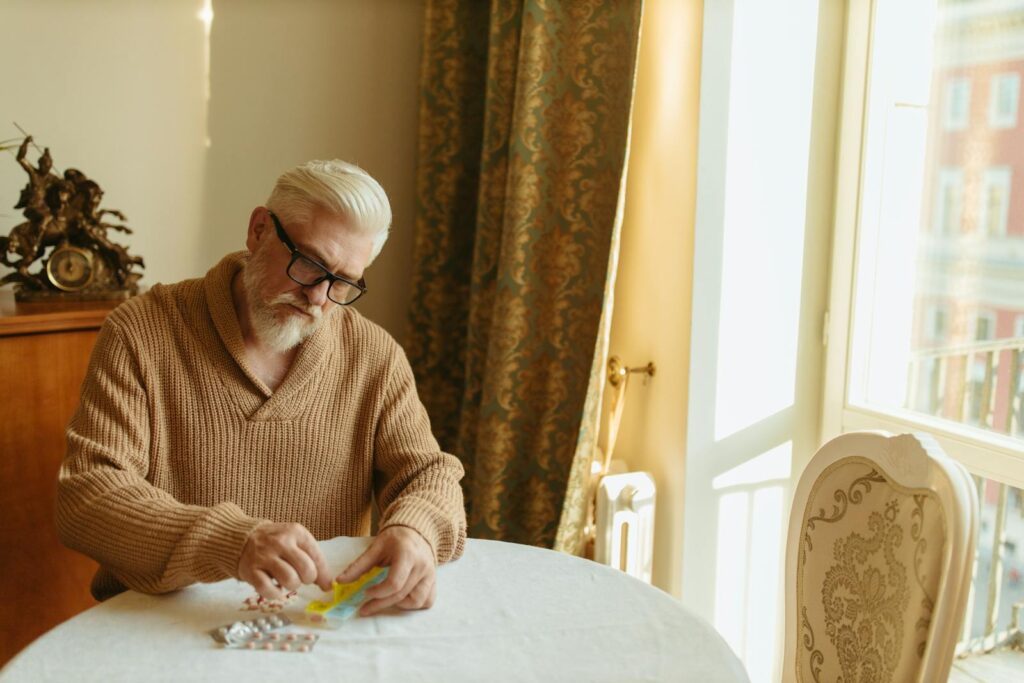
You’re not talking about promotions or new relationships as much anymore. It’s doctor appointments and knee replacements. Someone mentions their blood pressure, and everyone nods. You’re comparing notes on sleep or what vitamins actually work. The conversation turns medical without anyone meaning for it to. Your friend shows up with a walking stick, and nobody’s surprised.
Silence doesn’t bother you.
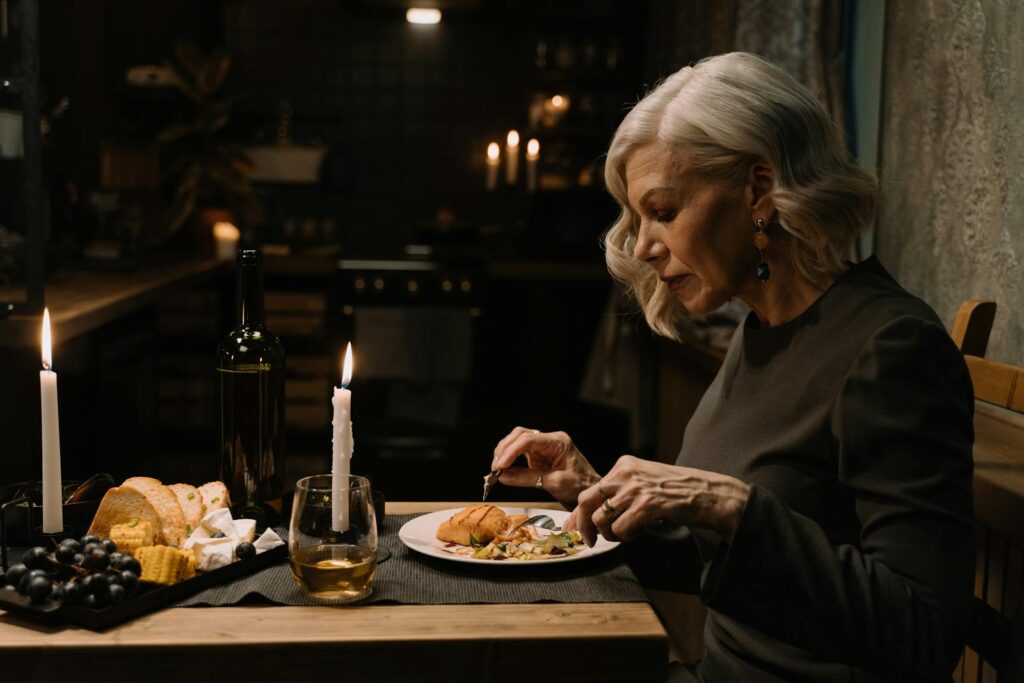
You can sit through an entire meal and only say ten words. It’s comfortable. The pressure to fill every gap is gone. You’re eating soup and looking out the window, and that’s enough. Your friend scrolls their phone, and you’re not offended. There’s something nice about just being in the same space without needing it to be anything more.
You lose friends to things you can’t control.
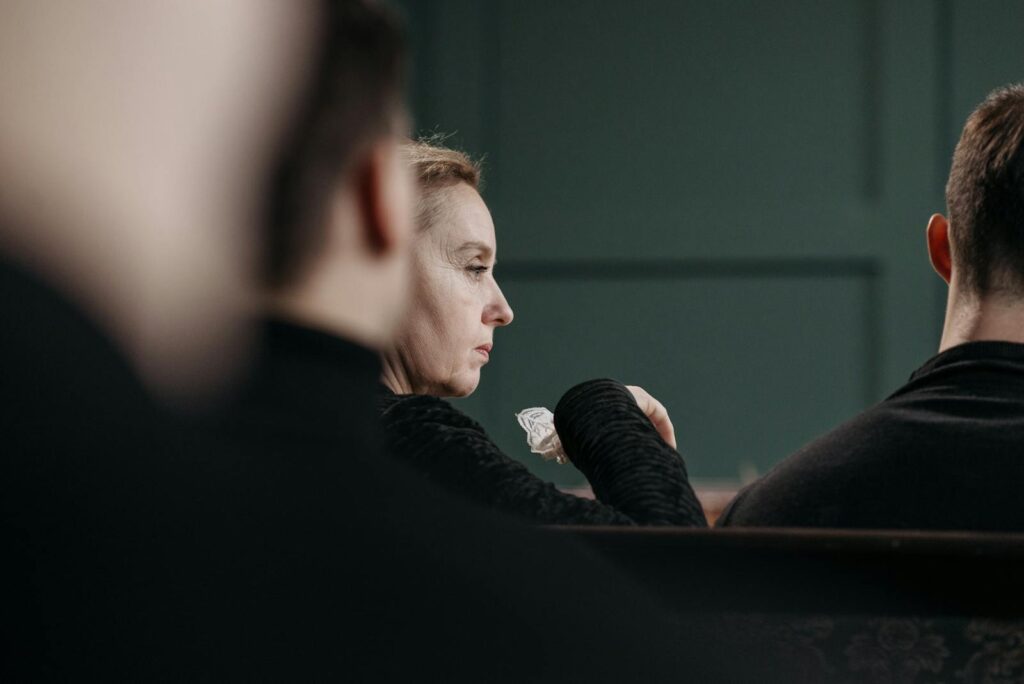
Death shows up, and it’s no longer abstract. Someone you’ve known for thirty years is just gone. Or they get sick, and you watch it happen slowly. You’re sitting at a funeral on a Thursday morning and wondering when this became normal. You don’t talk about it much, but it sits there in the back of everything—the chair they used to sit in stays empty.
Old friends matter in a way they didn’t before.
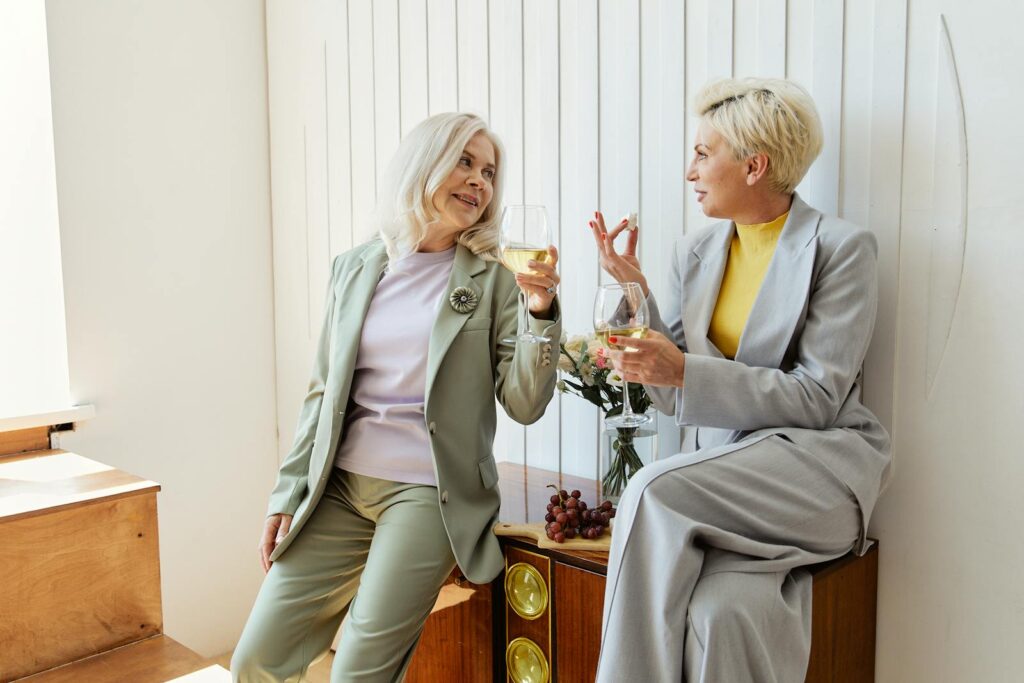
The people who knew you back then just get it—no backstory needed. You mention something that happened twenty years ago, and they already know what you mean. Building that kind of understanding with someone new would take forever. It’s not happening at this point. You realize how rare it is to have someone who remembers the old version of you. The one before everything got complicated. They still see that person somehow.
Making new friends feels almost impossible.

Building a friendship from nothing takes years. You have to learn someone’s whole personality and history. Figure out if you actually enjoy their company or just tolerate it. The initial small talk phase drags on forever. You’d rather spend time with people who already understand you than invest in starting fresh. Your current friends took decades to build. The idea of doing that again feels exhausting. You’re not sure you even want to anymore.
You stop pretending to like people you don’t.
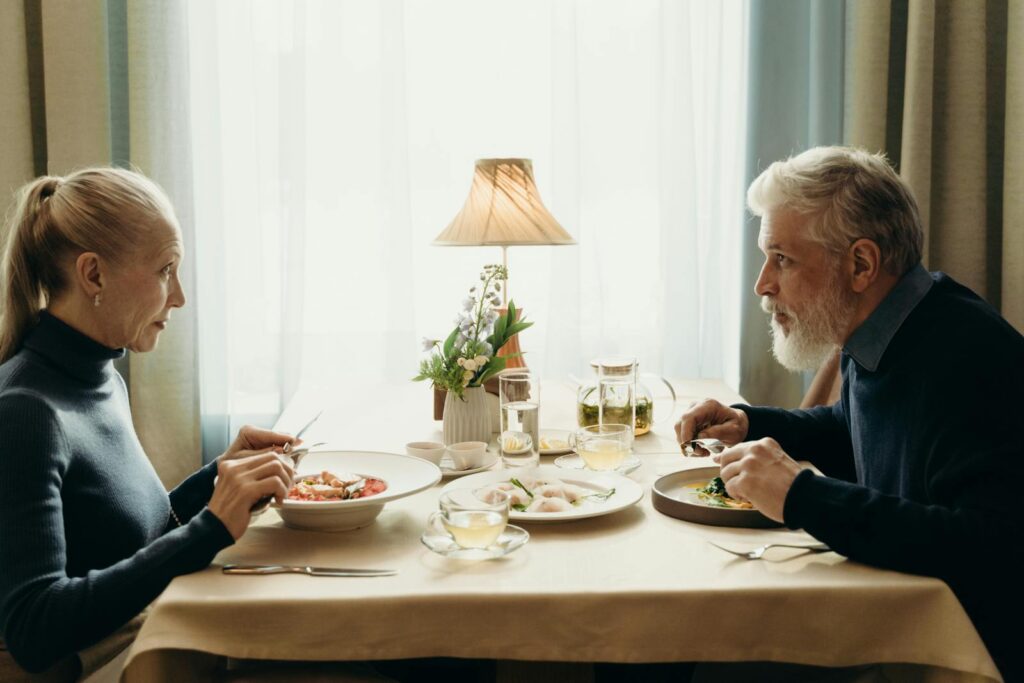
The fake smiling is over. If you don’t enjoy someone’s company, you just don’t see them. You’re not showing up to things out of obligation anymore. Your calendar gets clearer, and it feels good. Someone invites you somewhere and you say no without a long excuse. You’re done performing friendship when the real thing isn’t there. It’s freeing in a way you didn’t expect.
Your friends’ problems start feeling heavier.

It’s not just bad dates or work stress anymore. It’s a divorce after twenty years or kids who won’t call. Someone tells you something, and you don’t know how to fix it. You’re sitting across from them in a booth at a diner, and there’s nothing helpful to say. You just listen and hope that’s enough. Their troubles sink into you in a way they didn’t used to.
You care less about staying in touch constantly.

Three months without talking doesn’t mean the friendship’s over. You’re not keeping score anymore. Someone reaches out after a long silence, and you’re just glad to hear from them. The expectation to check in weekly or even monthly drops away. You’re standing in line at the grocery store, and you think of them, and that’s its own kind of connection.
Time moves differently.
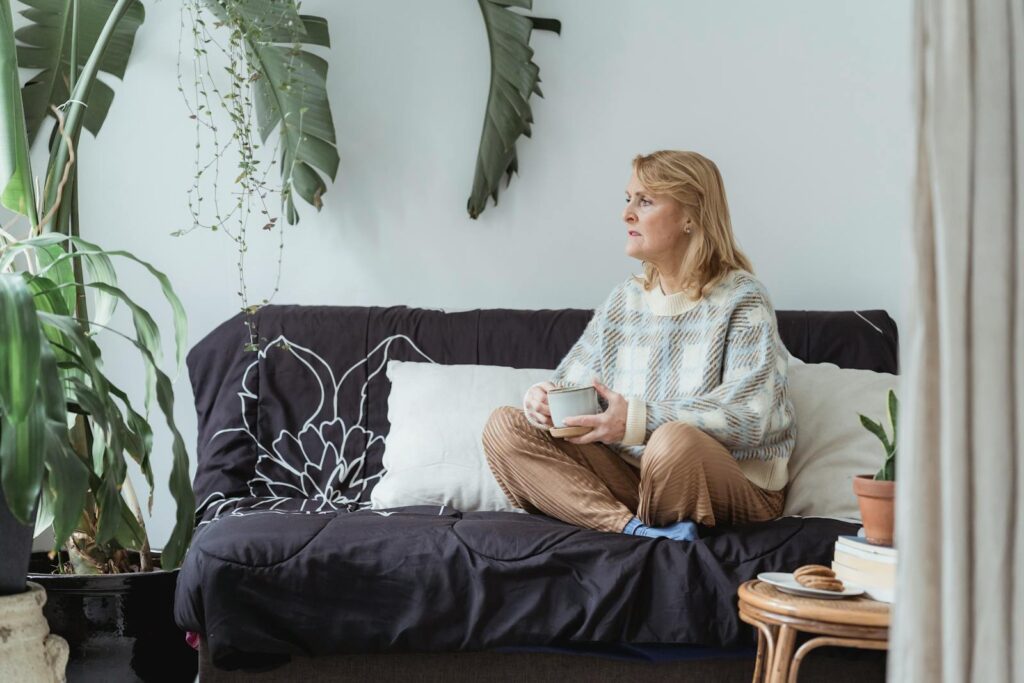
Plans you make for next month feel far away. You’re more aware that there’s only so much time left, not in a dark way exactly, but in a realistic one. You want to see people, but you also want to stay home. The balance keeps shifting. Your friend suggests a trip next year, and you both know you might not actually go. The intention is nice anyway.
People you thought would be there forever aren’t.
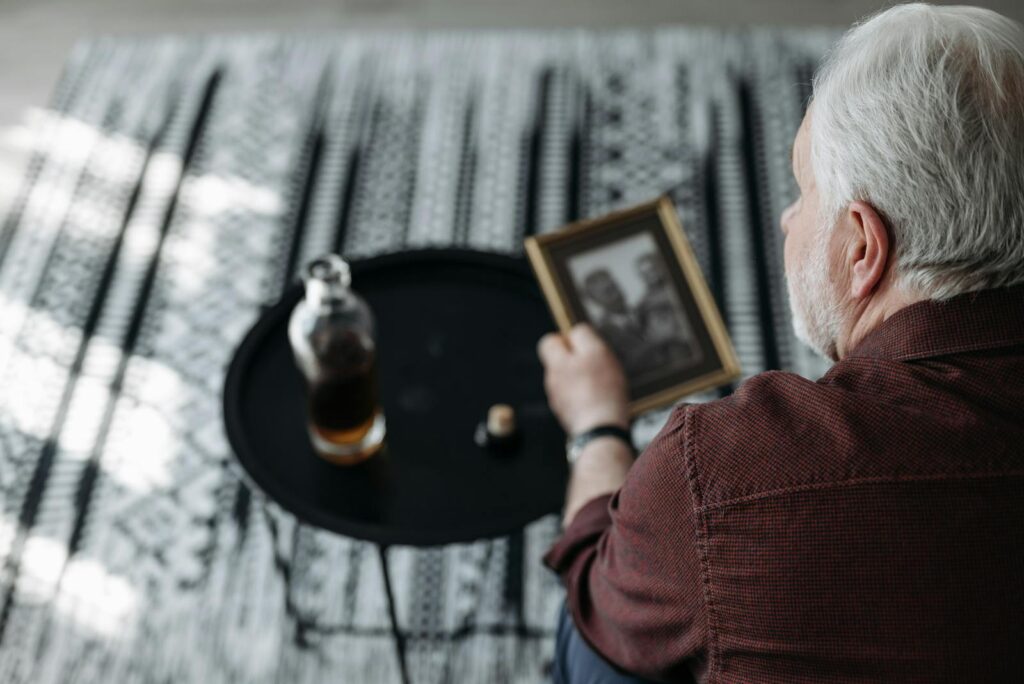
Someone you talked to every week just stops calling. Or they change in a way you can’t follow. You think about reaching out, but you don’t know what you’d say. The friendship served its purpose, and now it’s done. You’re folding laundry, and you remember something they said once, and that’s all that’s left. No hard feelings. Just distance.
You appreciate what you have more.

The friends who stayed become more important than you expected. Small things stand out now. They bring you coffee the way you like it without asking. They check in when you’re quiet. You’re less picky about people’s flaws than you used to be and everyone’s got something going on. If someone actually shows up when they promised you, notice. It matters more now. That kind of reliability didn’t seem like a big deal before.

